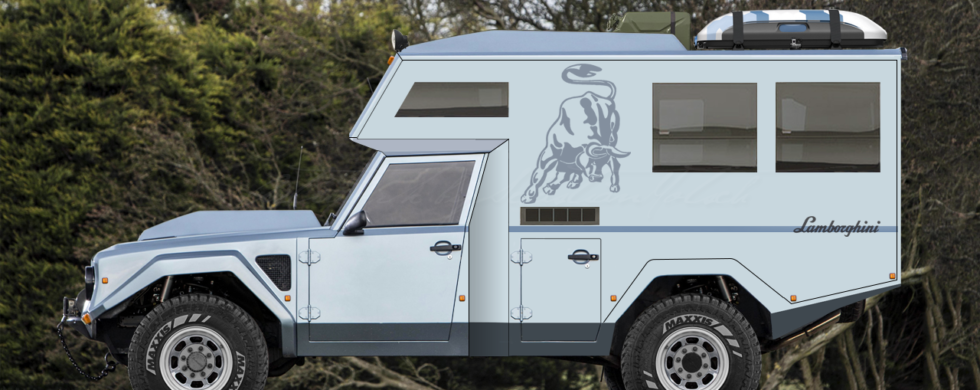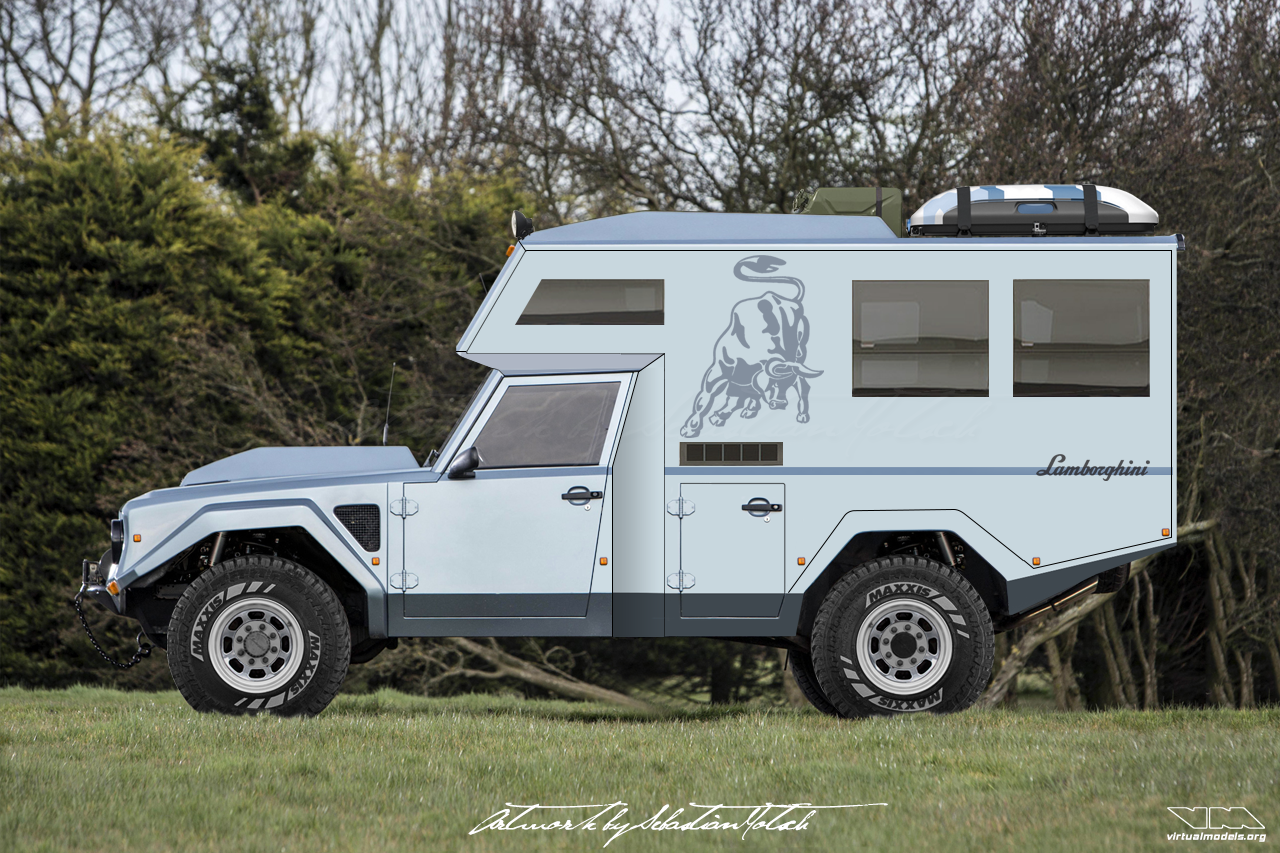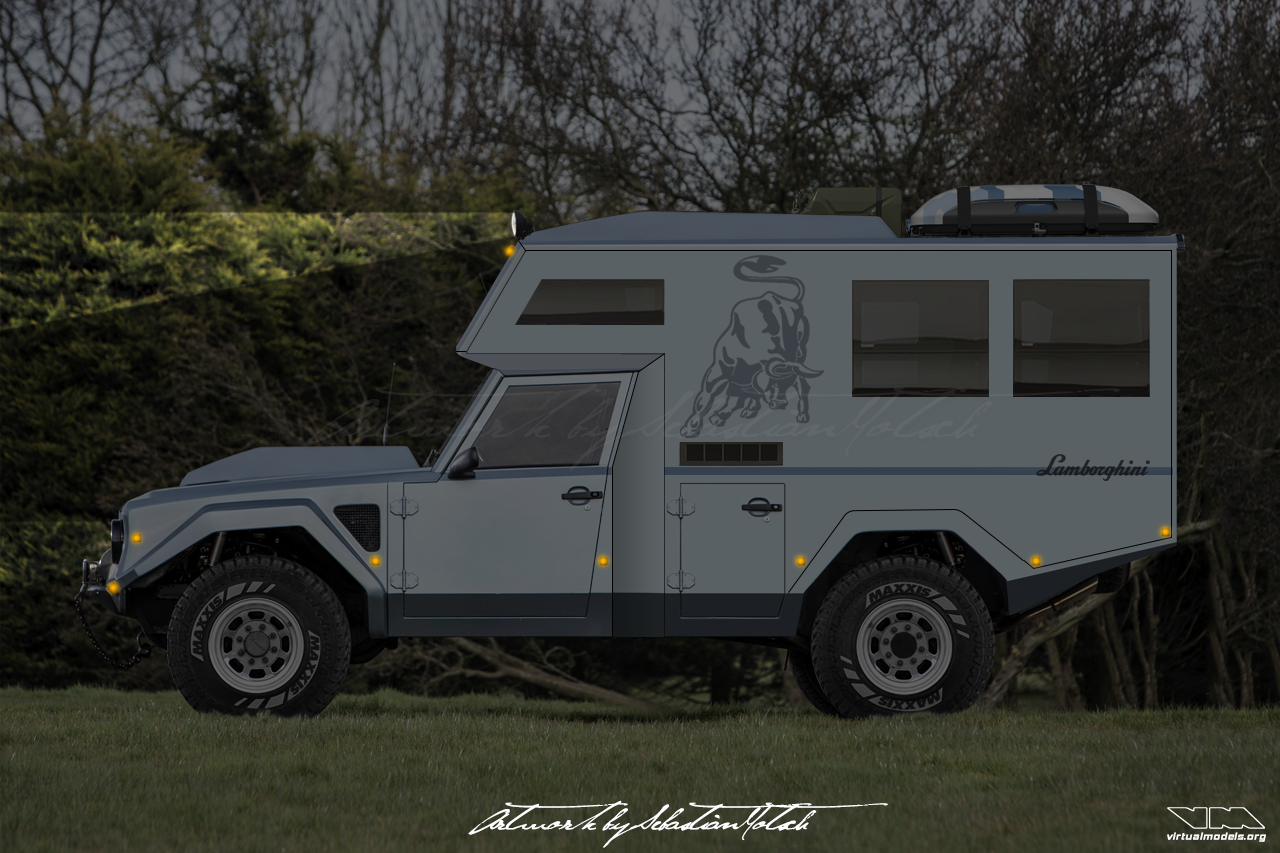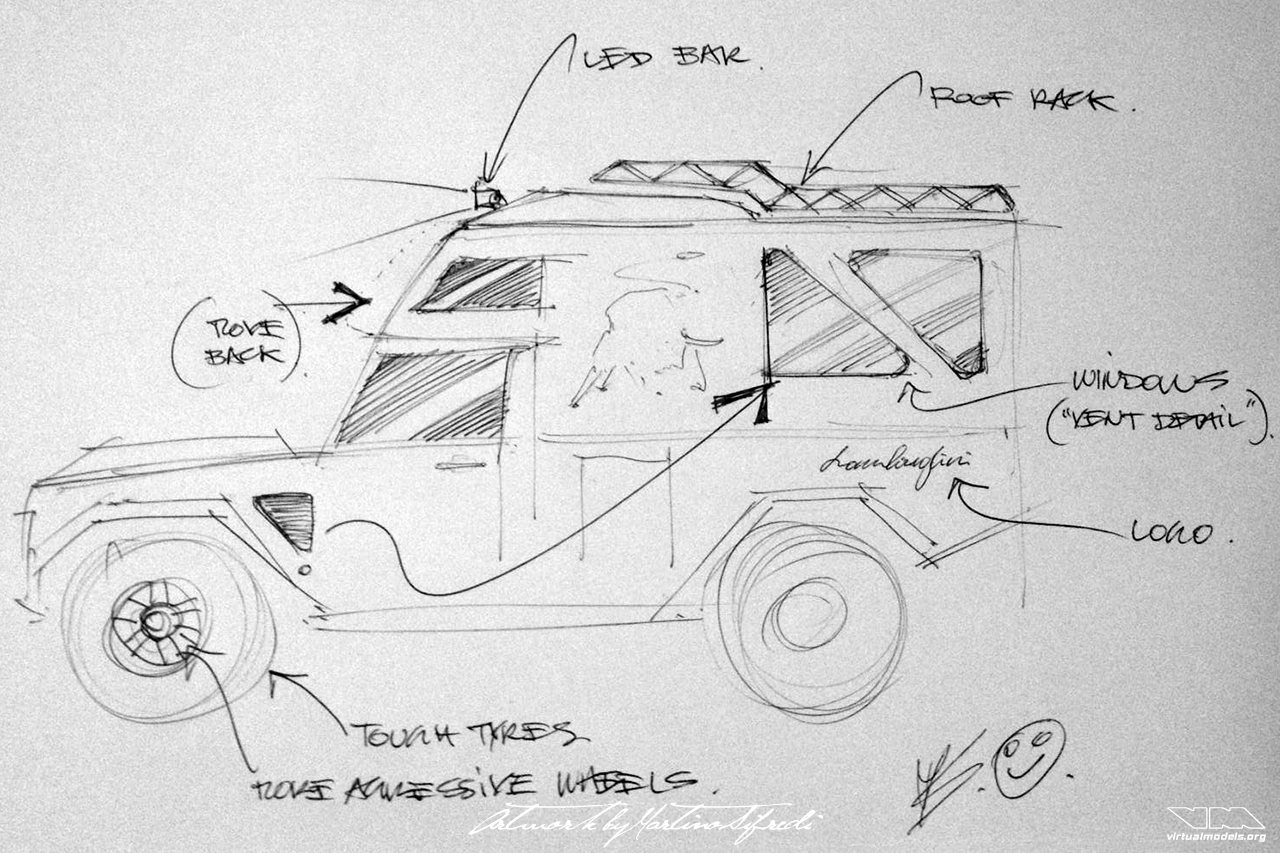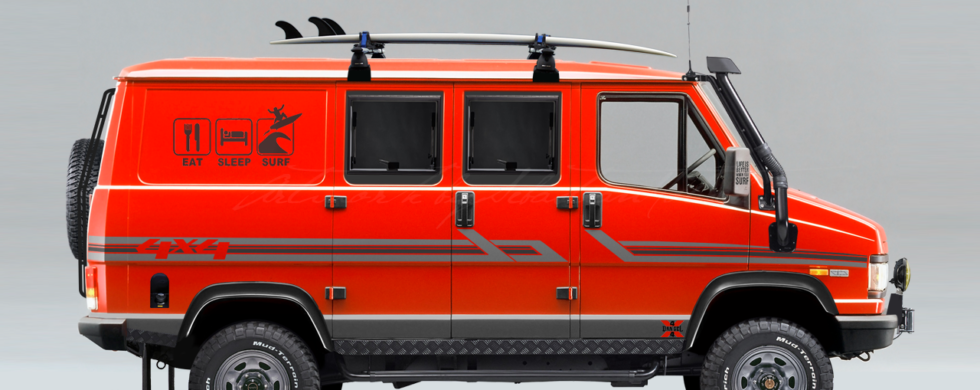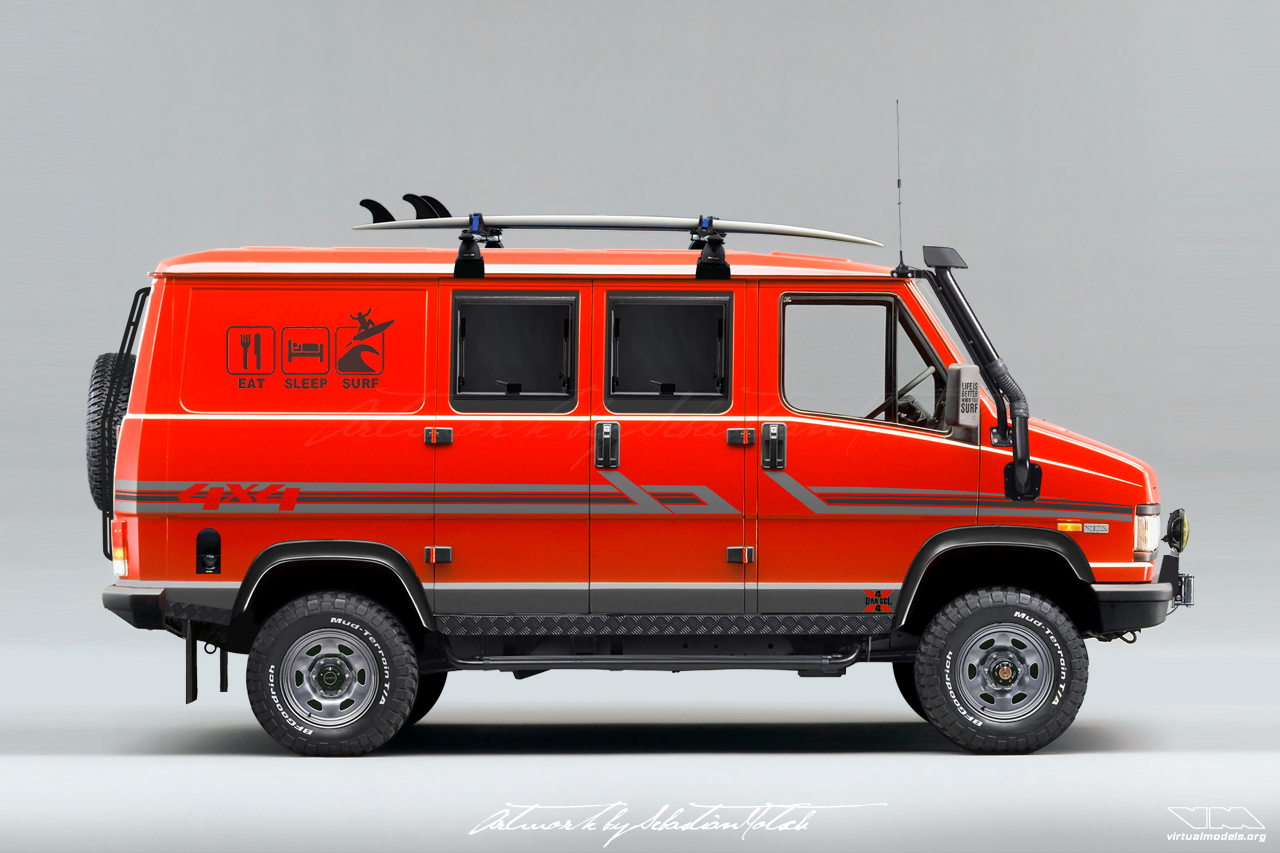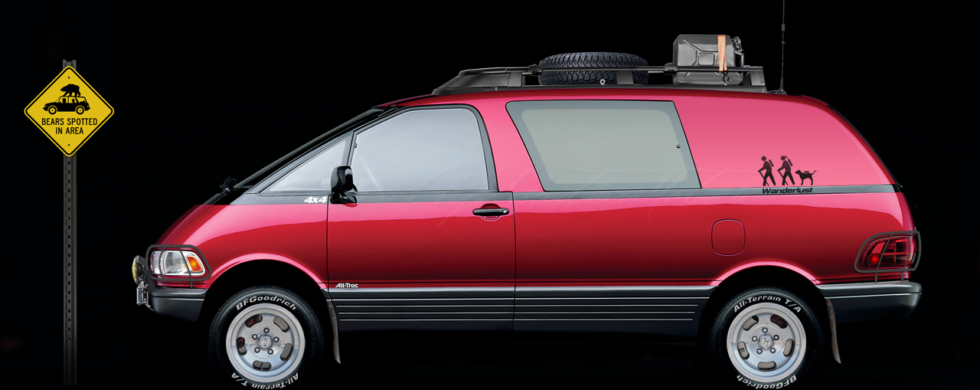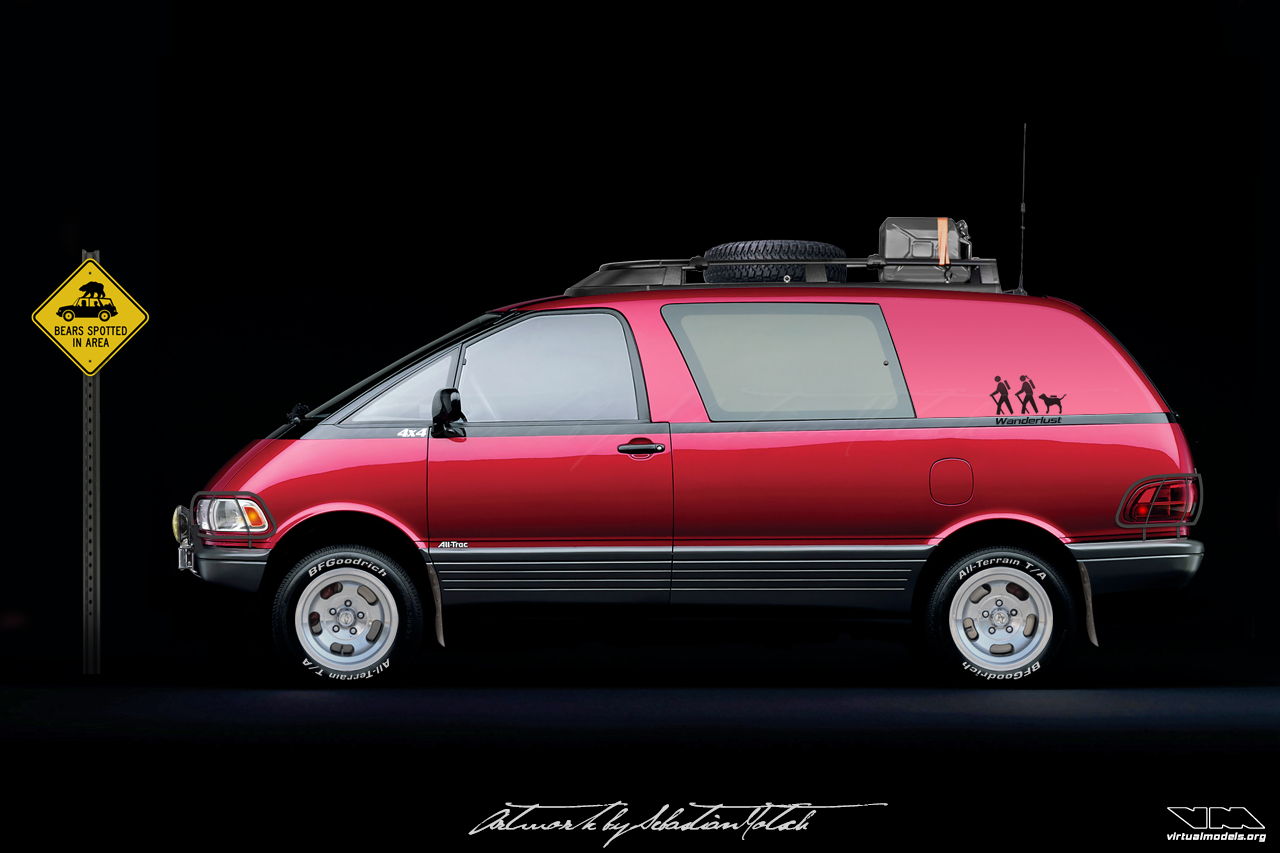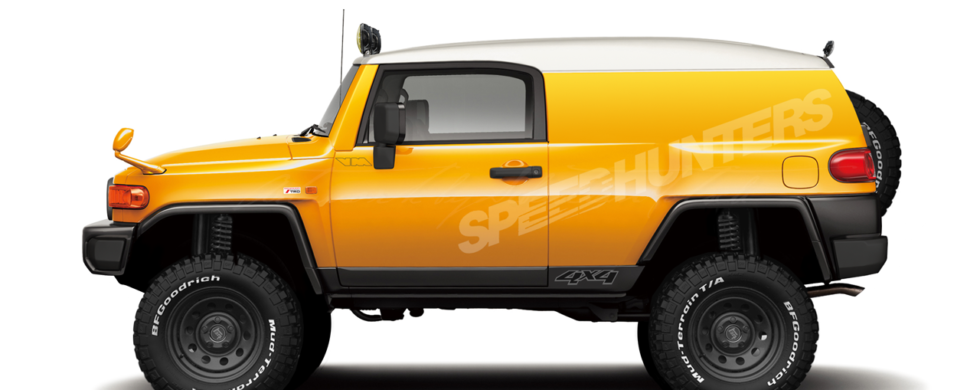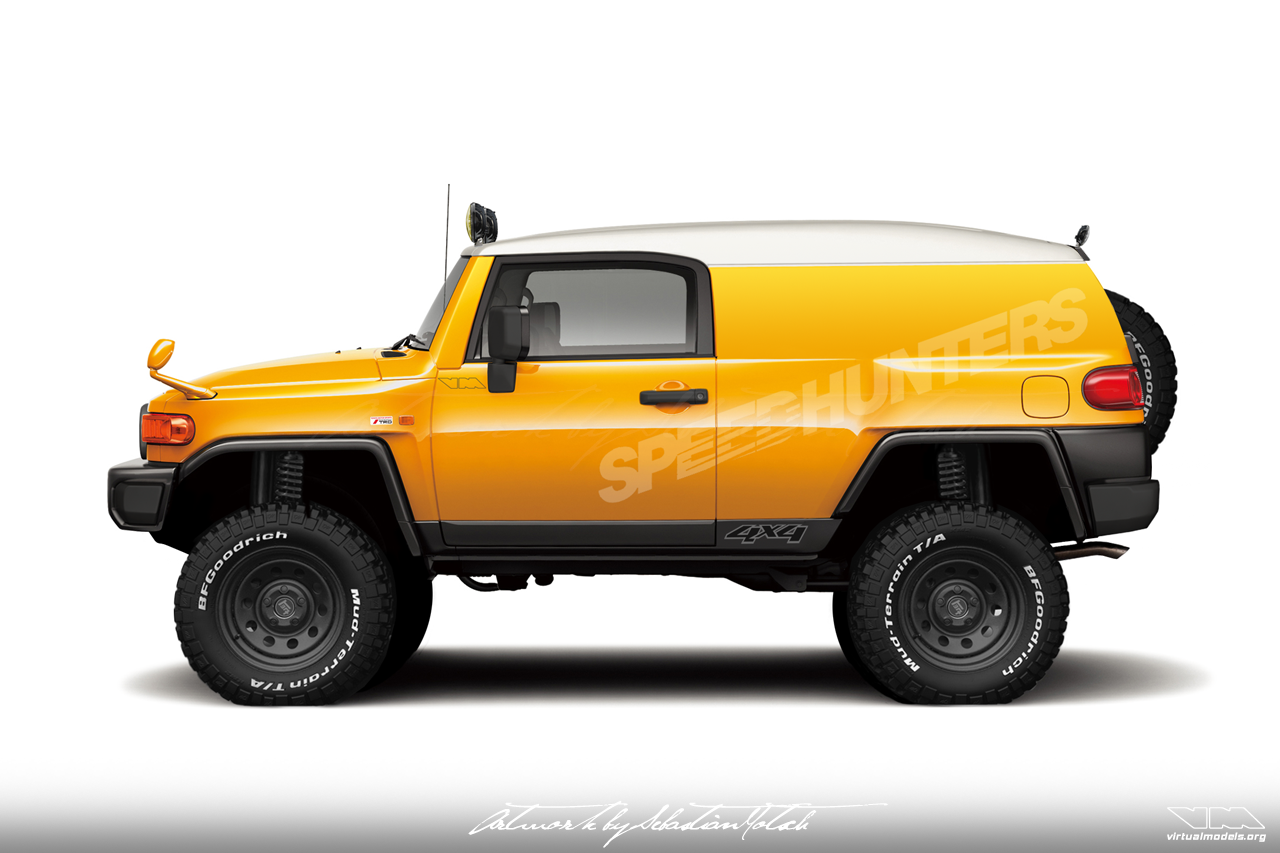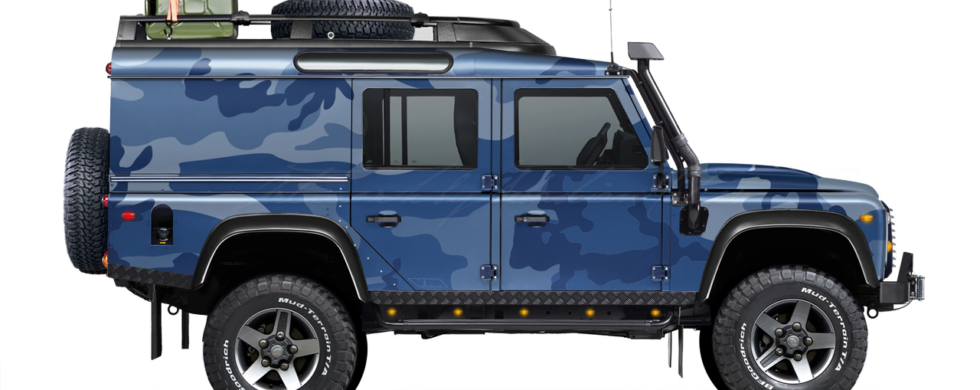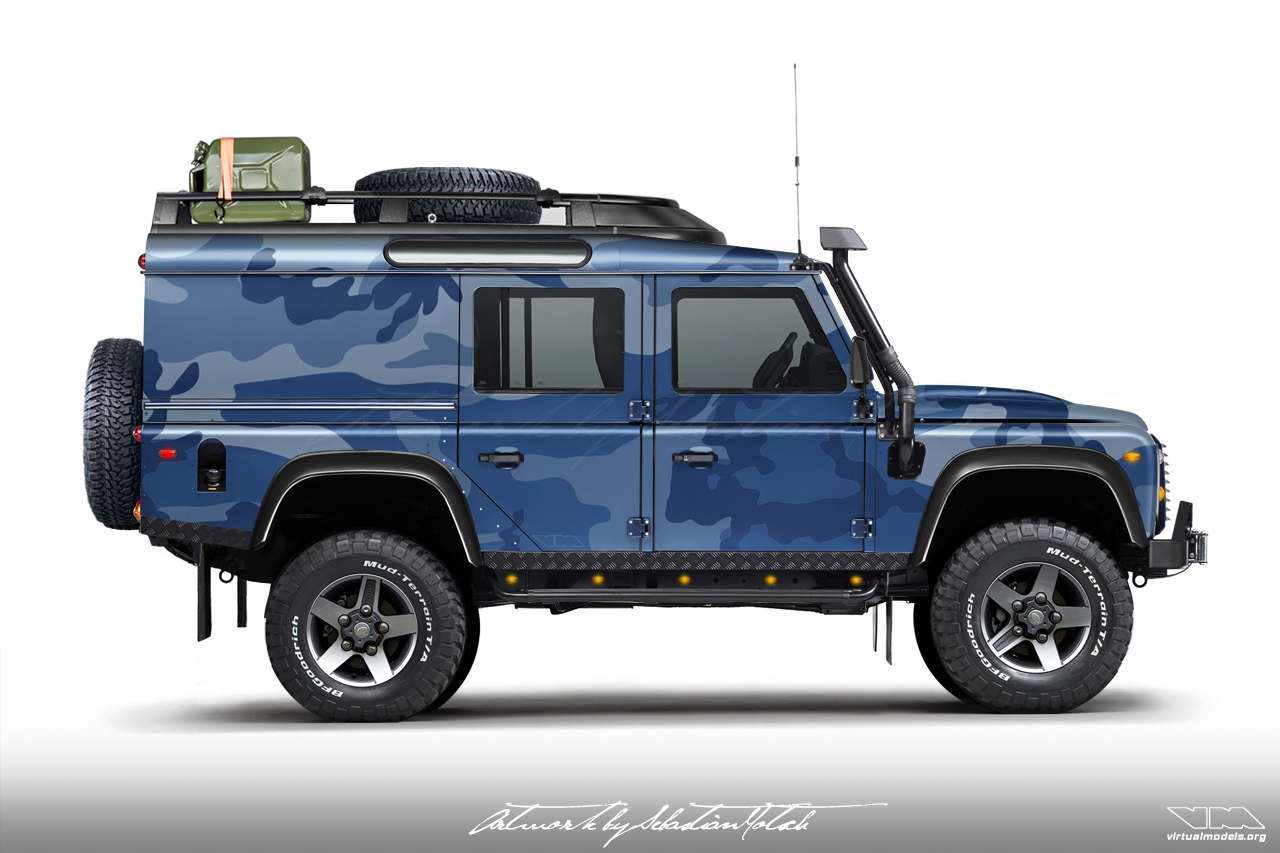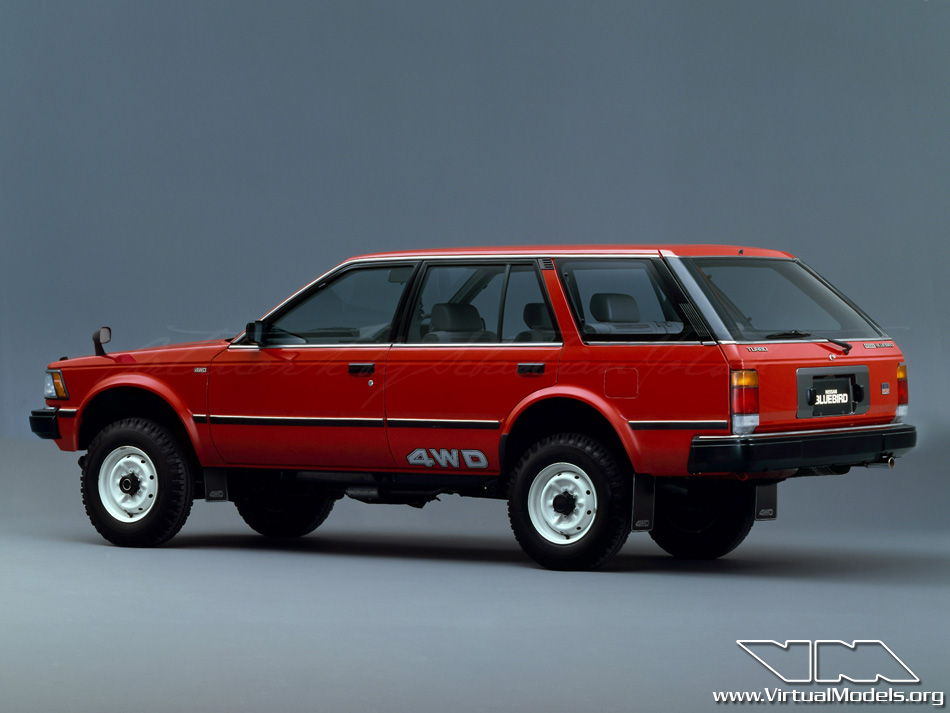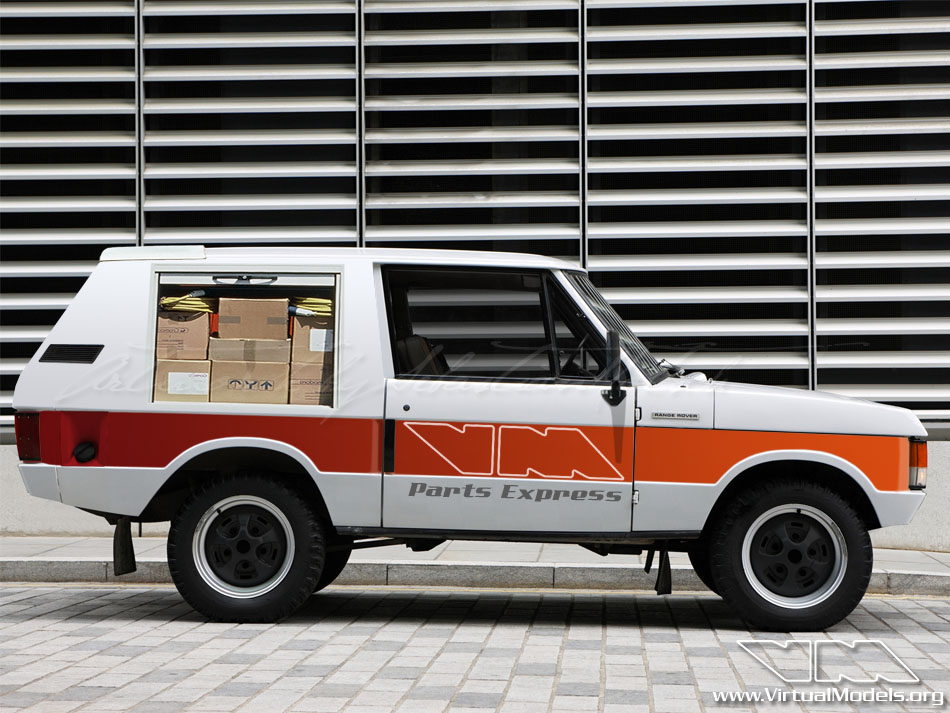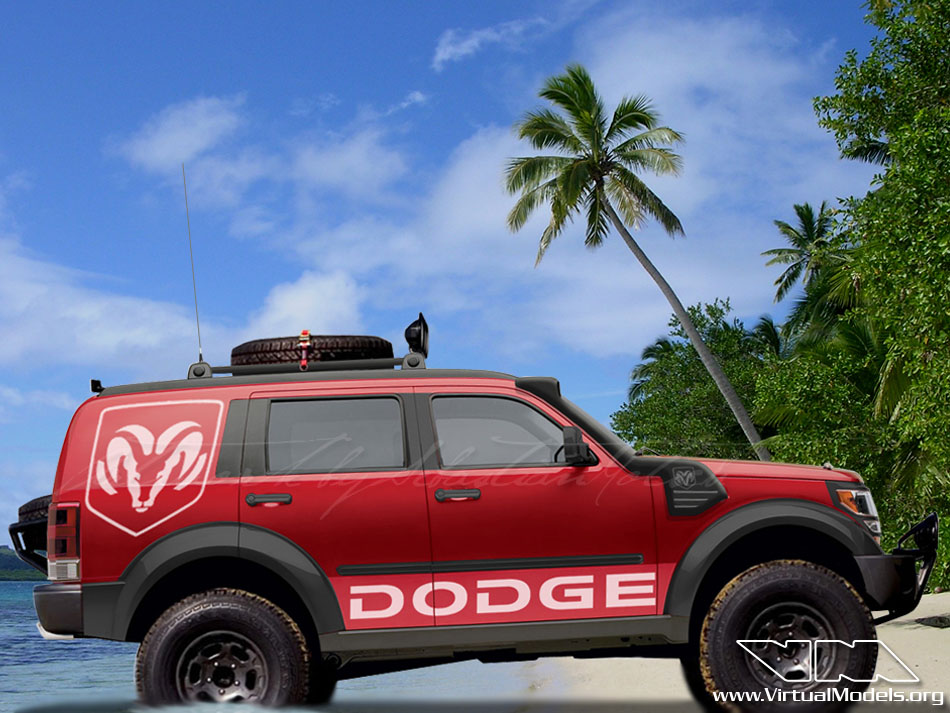06
 Lamborghini LM002 4×4 Camper
Lamborghini LM002 4×4 Camper
After hooking up an Airstream caravan to a lowered Suzuki Jimny just for fun, I thought it’s time to post a project I’ve been working on for a long time: the Lamborghini LM002 4×4 camper conversion. Form follows function and therefore the design of the vehicle is rather architectural. The lines of the base vehicle are a good place to start, because there are virtually no curves. Getting the proportions right is always important, but functionality is the highest priority with such a project. My friend Martino Sifredi suggested to mimic the vent design in the windows, as seen in his sketch below, but in the end I decided against it and went with rectangular ones for practical reasons. The interior could be furnished to match the customers taste, either in a very minimalistic design to reflect the military origins of the LM002 or in splendid luxury like a Riva yacht. The 4×4 vehicles ability could take you where most campervans can’t go, although an engine swap might be a wise choice to improve the range, due to the thirst of the original V12 engine.
This is what it could look like at night:
Click here to see the original picture.
15
“Eat. Sleep. Surf.”
Great idea, but before embarking on an adventure and just doing what the sticker says, you have to build a go-anywhere vehicle that will take you even to the most remote of beaches. Let’s suppose your funds are limited and you have to make do with whatever base vehicle you find in your area. If it happens to be a FIAT Ducato Mk1 or Peugeot J5 with Dangel 4×4, you’re a lucky chap. Provided the rust has not eliminated most of the metal, it is a fairly good base to start with. Build a lift-kit, add overfenders, source some nice wheels and appropriate BF Goodrich rubber, build a camper interior that suits your needs, load up the surfboard and drive to the beach. Should you have forgotten to stop at the supermarket, it’s just surfing and sleeping for you and you’ll have to ask fellow campers for something to eat. 😉
P.S.: The trim-line stickers are losely based on the original stickers of the Ducato 4×4.
15
Vanlife doesn’t only mean living and traveling in a van full-time. Most people actually just use for recreational purposes on the weekends and during their holidays. I found a picture of a 1990’s Toyota Previa All-trac and wondered if it would be possible to create a low-budget vehicle that has the ability to take you off-road to those remote hiking trails. After returning from the trail you could cook a meal, have a cold drink and sleep until the next morning. I removed the rear windows to make insulation easier and create room for storage. A body lift helps to tackle dirt tracks with more clearance and the light guards protect all four corners of the Previa. The bumpers have been shortened to improve approach and departure angles. And if you manage to get stuck, the winch will pull you out of trouble. Old school Wolfrace slot mags give it a that 1970’s vanlife touch and the roof rack provides storage for the spare tire and a couple of gas and water canisters. Add a CB-radio for those areas without cellphone reception and you’re set to go exploring. Happy hiking!
07
To be quite honest, I’m not the biggest fan of the Toyota FJ Cruiser styling. However, I appreciate the value for money this vehicle gives any aspiring off-roader. These are very capable vehicles and there are lots of aftermarket parts available to improve it. When Larry Chen of Speedhunters fame bought his manual transmission FJ and started posting his stunning pictures, I literally looked at it in a different light. When modified, it doesn’t look bad at all and I was wondering what I could do to make my vision stand out from all the other modified FJs out there. Even though the design doesn’t naturally lend itself to being modified into a 2-door version, I thought I’d give it a try. To keep one of the main design features of the FJ, I carried the door/roof line over to the concept and kept the two-tone paint scheme. The shorter wheelbase I first tried looked rather silly due to odd proportions and therefore I decided to keep the original. The resulting proportions hint at the equivalent Land Rover Defender 110. A meatier set of BF Goodrich tires on budget-friendly steel wheels called for alterations of the front bumper, even though a lift kit with coil springs was utilized. While at it, the rear bumper was also modified to improve the departure angle and because two spare tires are better than one, I mounted them Dakar or Baja 1000 style in the area formerly occupied by the trunk.
If you want to compare the panel van conversion to the original picture, click here.
07
For a very long time I wanted to photoshop a Land Rover Defender but for some reason or another I never did. Today I thought about it again and went to work on it immediately. Starting with a plain 110 Utility Wagon I lifted it substantially, added bigger wheels with BF Goodrich Mud Terrain tires, relocated the overfenders for more clearance and cut the rear quarter panel for a better departure angle. Winch and snorkel are a must on any 4×4 in my opinion, but I went a different route with the roof rack. Instead of utilizing the old fashioned style, I tried to create an integrated and more aerodynamic version complete with spare tire and jerrycans. To finish it off, I added a blue camouflage design. Now… I’d love to hop in, take it off-road and get it dirty.
Click here to see the original picture.
09
Many crossover models came to the market in the last couple of years. Most of them just adding some plastic cladding to a regular wagon for that “offroad feeling” – but missing the underpinnings to actually go offroad without getting stuck. Just imagine what a cool old-school wagon on a rugged base with solid axles could have looked like back then, when cars where still properly designed by engineers. It could have looked like that: grafting a Nissan Bluebird Wagon body to a Datsun 4WD pick-up chassis. OK, it wouldn’t really be that easy in reality, due to the FWD architecture of the U11 Bluebird. But hey… what if? 😉
19
Let’s imagine you own a company operating in the express delivery business. If somebody orders e.g. car parts, your company usually delivers the parts with a van or truck. But what if you need to deliver something in a more remote area, which standard delivery vehicles can’t access? Well, here is my solution this side of a parts drop from a helicopter: the we-deliver-your-order-anywhere-without-hassles Range Rover off-road delivery vehicle. This Mk1 has been modified to carry boxes and parcels in the back. The cargo bay is accessible from three sides via roll-up doors. Who wouldn’t like to have that?
… and for your well-earned holidays, just add a roof-top tent and put your supplies into the cargo bay. 🙂

